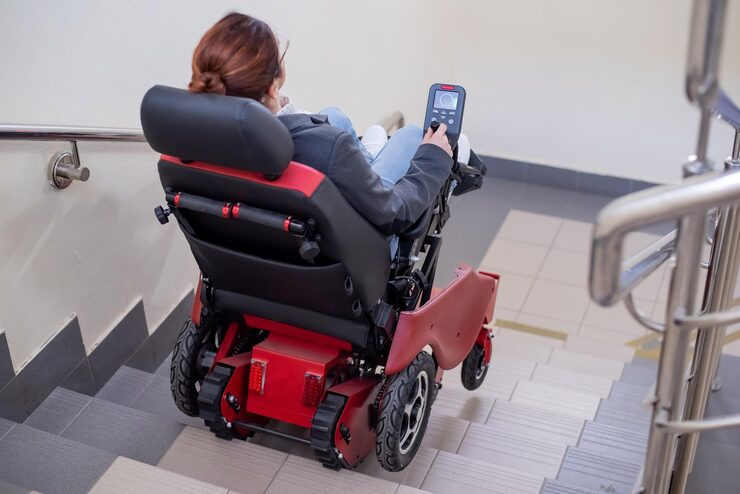For individuals with limited mobility, the right wheelchair is more than a piece of equipment—it’s a gateway to independence, dignity, and daily comfort. Whether for short-term recovery or long-term care, selecting a wheelchair suited to your or your loved one’s needs can make all the difference. Today, we explore the difference between a standard mobility wheelchair and the advanced functionality of a tilt in space wheelchair, helping you decide which option supports better health and freedom of movement.
What Is a Mobility Wheelchair?
A mobility wheelchair is designed to assist people who have difficulty walking or standing for long periods. These wheelchairs come in various types—manual, powered, or transport—each serving a distinct purpose. They offer users the ability to move safely within their homes, travel outdoors, or navigate community settings with ease.
Modern mobility wheelchairs are engineered with ergonomic seating, lightweight frames, and enhanced maneuverability. Whether someone is looking for a solution for occasional use or a long-term partner in daily life, mobility wheelchairs provide a wide range of customizable options that cater to individual needs.
The Importance of Comfort and Pressure Relief
When it comes to long-term use, one of the biggest challenges wheelchair users face is maintaining posture and preventing pressure injuries. That’s where specialized solutions like the tilt in space wheelchair come into play.
Unlike traditional recline chairs, which simply move the backrest backward, tilt-in-space wheelchairs tilt the entire seating system backward as one unit. This repositioning redistributes weight from the hips and buttocks to the back, dramatically reducing the risk of pressure sores and improving circulation. For users with reduced trunk control or who require advanced postural support, this function is invaluable.
Benefits of a Tilt-in-Space Wheelchair
Let’s dive deeper into the unique features that set the tilt in space wheelchair apart:
- Improved Pressure Management: By allowing changes in position throughout the day, these wheelchairs help minimize pressure buildup on any single area of the body.
- Enhanced Respiratory and Digestive Function: The tilt feature allows users to find a more open and supported position, promoting better breathing and digestion.
- Postural Support: Users with muscle weakness or neurological conditions benefit from improved alignment, reducing fatigue and enhancing comfort.
- Caregiver Support: These wheelchairs also reduce physical strain for caregivers, making transfers and repositioning much easier and safer.
Who Benefits Most from a Tilt-in-Space Wheelchair?
This advanced wheelchair design is particularly useful for:
- Individuals with spinal cord injuries
- Children with cerebral palsy
- Adults with ALS, muscular dystrophy, or MS
- Stroke survivors
- Patients in rehabilitation programs
It’s ideal for anyone who requires extended wheelchair use and needs frequent repositioning throughout the day.
Making the Right Choice: What to Consider
When deciding between a standard mobility wheelchair and a tilt-in-space model, consider the following:
- Duration of Use: Is the chair needed for temporary recovery or permanent support?
- Level of Mobility: Can the user self-propel or do they need a powered option?
- Postural Needs: Does the user need frequent repositioning for comfort or medical reasons?
- Environment: Will the wheelchair be used primarily indoors, outdoors, or in both settings?
- Transport & Storage: Will the wheelchair need to be folded, lifted, or stored regularly?
Consulting with a certified assistive technology professional or occupational therapist can provide guidance tailored to your needs. Remember, the best wheelchair is the one that suits your unique lifestyle, health condition, and comfort preferences.

Investing in the Right Equipment
High-quality medical equipment is essential to improving quality of life. That’s why it’s important to choose products sourced from trusted, industry-leading manufacturers. One provider that prioritizes both innovation and client care is Eclipse Mobility. They believe in investing in their clients by offering only the best in wheelchair technology and support services.
From personalized fittings to detailed guidance, the right supplier will make sure every client receives the care and comfort they deserve.
In Conclusion
Mobility challenges shouldn’t limit anyone’s ability to live a full and independent life. Whether you need a lightweight mobility wheelchair for daily errands or a specialized tilt in space wheelchair for medical and postural support, modern advancements make it easier than ever to find a solution that fits.
Choosing the right wheelchair is not just a medical decision—it’s a lifestyle upgrade. And with today’s technology and compassionate providers, comfort, independence, and health are always within reach.


